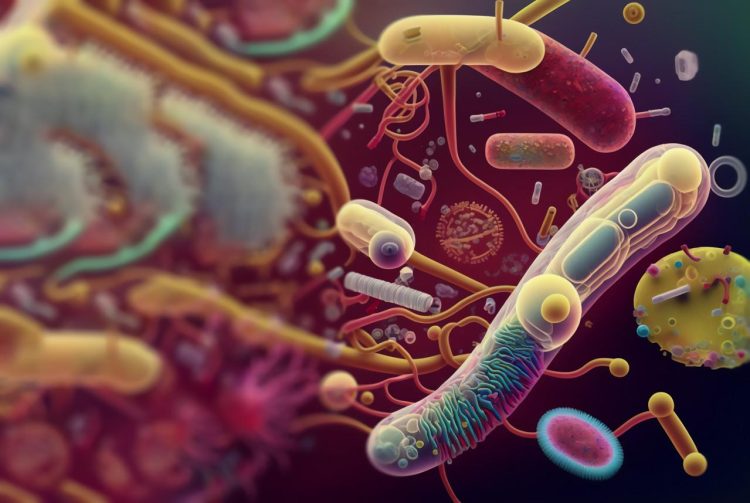In recent years, scientists have uncovered an astonishing connection between the gut and the brain, often referred to as the gut-brain axis. This two-way communication system links your digestive system with your emotions, cognition, and mental health. Emerging research suggests that taking care of your gut microbiome—the trillions of bacteria living in your intestines—can have profound effects on your mood, anxiety levels, and overall psychological well-being.
But is there a method or approach that can simultaneously nurture your gut health and improve your emotional state? The answer is yes. This article explores the fascinating interplay between gut microbes and mood, and highlights lifestyle strategies and interventions that can satisfy both your gut bacteria and your mental health.
Understanding the Gut-Brain Axis: How Your Microbiome Influences Emotions
Your gut is often called your “second brain” because it contains a vast network of neurons known as the enteric nervous system. This system communicates constantly with your central nervous system via the vagus nerve, hormonal signals, and immune pathways.
Key points about the gut-brain axis:
- Gut microbes produce neurotransmitters such as serotonin, dopamine, and gamma-aminobutyric acid (GABA), which influence mood and anxiety.
- They regulate inflammation, which, when chronic, can contribute to depression and cognitive decline.
- The composition and diversity of gut bacteria can affect stress resilience and emotional regulation.
How Gut Health Impacts Your Mood
Numerous studies have demonstrated correlations between gut microbiota imbalances (dysbiosis) and mental health disorders:
- People with depression often show reduced diversity in gut bacteria and altered microbial profiles.
- Anxiety symptoms have been linked to changes in specific bacterial strains.
- Animal studies have shown that transplanting microbiota from anxious or depressed individuals can induce similar behaviors in recipient animals.
A Holistic Approach: Strategies That Nurture Both Gut and Mind
To support both your microbiome and your mental well-being, consider these evidence-based methods:
1. Diet Rich in Prebiotics and Probiotics
- Prebiotics (fiber-rich foods like garlic, onions, bananas, and asparagus) feed beneficial bacteria.
- Probiotics (fermented foods like yogurt, kimchi, sauerkraut, and kefir) introduce healthy bacteria to the gut.
- This diet promotes microbial diversity and production of mood-regulating metabolites like short-chain fatty acids (SCFAs).
2. Regular Physical Activity
Exercise positively modifies the gut microbiome composition and increases the release of endorphins and brain-derived neurotrophic factor (BDNF), which supports brain health and emotional balance.
3. Stress Management and Mindfulness
Chronic stress disrupts gut microbiota balance and gut barrier integrity. Mindfulness meditation, yoga, and deep breathing reduce stress hormones, indirectly benefiting gut health and mood.
4. Adequate Sleep
Sleep deprivation alters gut bacteria and increases inflammation, both of which negatively affect mood. Prioritize consistent, high-quality sleep for gut and mental wellness.
5. Targeted Supplementation
Some probiotic strains—known as psychobiotics—have demonstrated mood-enhancing properties in clinical trials. Examples include Lactobacillus rhamnosus and Bifidobacterium longum.

Real-World Evidence: Success Stories of the Gut-Mood Connection
- A 2016 study published in Psychiatry Research found that participants consuming fermented foods experienced reduced social anxiety.
- Athletes who exercise regularly show improved microbiome diversity and lower rates of depression.
- Mindfulness-based interventions have been associated with shifts in gut microbiota, supporting emotional health.
Practical Tips to Get Started
- Incorporate a variety of colorful fruits, vegetables, and fermented foods into your diet.
- Practice mindful eating to reduce stress-related gut disturbances.
- Try daily short sessions of meditation or gentle yoga.
- Maintain a regular sleep schedule and avoid stimulants before bedtime.
- Consult healthcare providers before starting probiotic supplements to choose appropriate strains.
Conclusion
The gut and brain are deeply interconnected, forming a complex network where your microbes play a starring role in regulating emotions and mental health. Fortunately, you don’t have to choose between gut health and mood—by embracing a holistic lifestyle that supports both, you can nurture a thriving microbiome and a balanced mind simultaneously.
Taking care of your gut isn’t just about digestion—it’s a powerful, natural way to boost your emotional well-being and resilience. So the next time you reach for a snack or decide how to unwind, remember: satisfying your gut might just mean satisfying your mood, too.








































